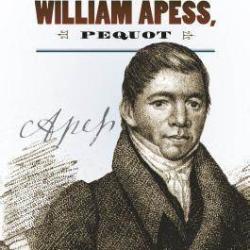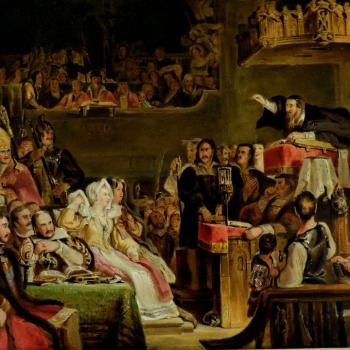I recently reviewed Michael Winship’s Godly Republicanism: Puritans, Pilgrims, and a City on a Hill, and thought I would use the occasion to offer a list of 5 all-time great books on the Puritans in America. The Puritans have attracted a great deal of scholarly attention, so there are lots of excellent books not included here. I am also focusing (unsurprisingly) on books written by historians, not by theologians or pastors.
1. Perry Miller, The New England Mind: The Seventeenth Century and The New England Mind: From Colony to Province . OK, so I have already bumped the list up to six, in order to include both volumes of Perry Miller’s magnum opus. These are the books that hooked me on the Puritans and early American religion when I read them in graduate school. Miller is widely regarded as the greatest historian of American Puritanism. His interest in the Puritans is a fascinating story in itself: an atheist and heavy drinker, Harvard’s Miller nevertheless admired the Puritans as serious intellectuals who really lived out the beliefs they espoused.
2. Edmund Morgan, The Puritan Family: Religion and Domestic Relations in Seventeenth-Century New England. Morgan, a student of Miller’s, wrote several excellent books on the Puritans; this sympathetic treatment of the warmth and passion of Puritan family life belies the stereotype of Puritans as legalistic killjoys.
3. Charles Hambrick-Stowe, The Practice of Piety: Puritan Devotional Disciplines in Seventeenth-Century New England. Many histories of the Puritans illustrate their ideas or evoke their social lives, but Hambrick-Stowe brilliantly explicates Puritan devotional practices and their fervent love for God.
4. Harry Stout, The New England Soul: Preaching and Religious Culture in Colonial New England. Miller emphasized the changing nature of Puritanism in America, but Stout tells a story of continuity. Through heroic archival research in regular, unpublished sermons, Stout finds that Puritan theology, focused on the doctrine of covenant, remained quite stable throughout the colonial era.
5. Jill Lepore, The Name of War: King Philip’s War and the Origins of American Identity. Written in a compelling, unconventional style, The Name of War recounts the tragic, brutal history of this Puritan war with Native Americans in the 1670s, which remains by percentage of people killed one of the deadliest wars in American history.
So there you go–what would you have included instead?












